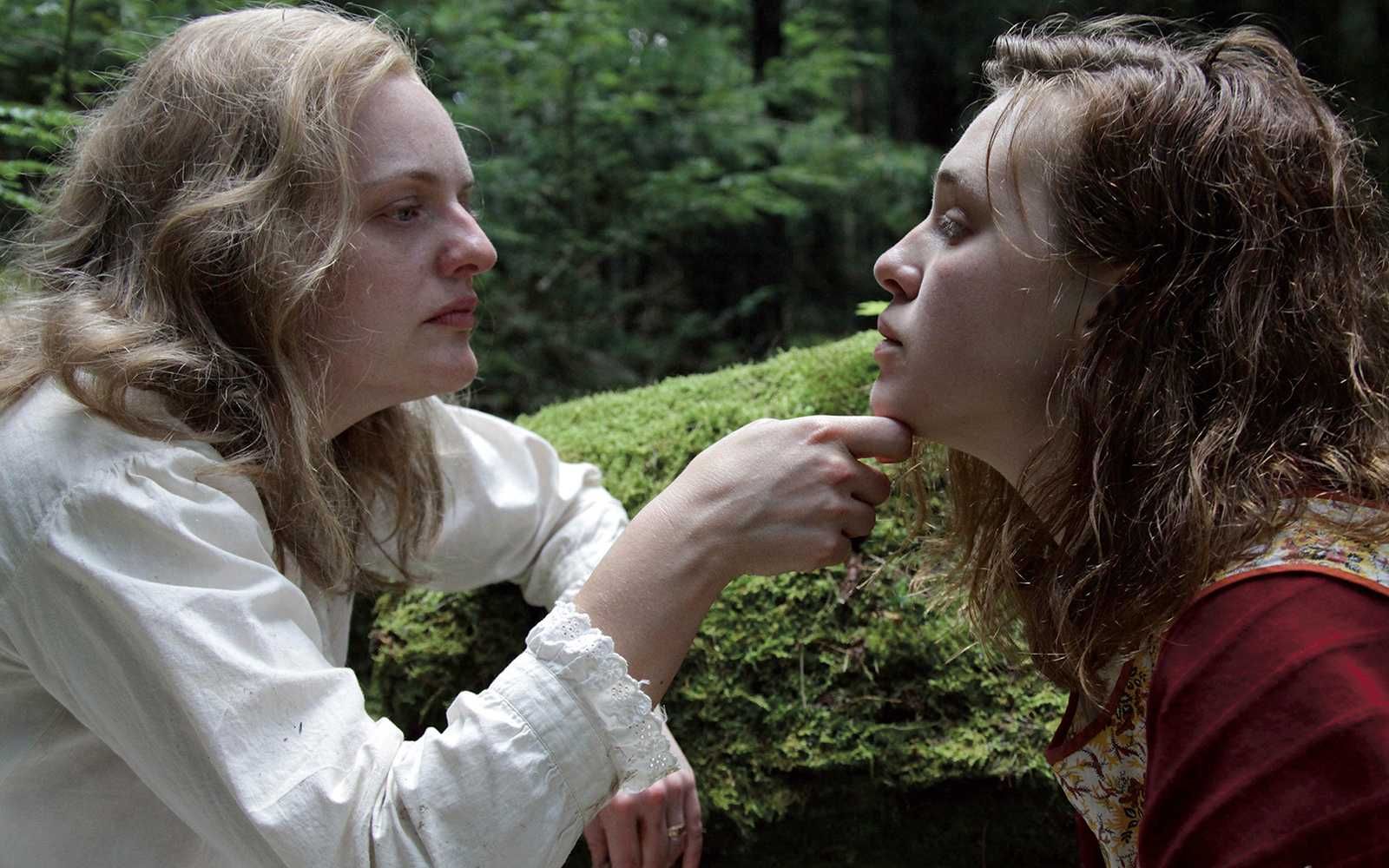Holed up with her viciously judgmental and ostensibly supportive professor husband Stanley (Michael Stuhlbarg), Jackson is plagued with anxiety and agoraphobia while attempting to complete her next piece of visionary horror fiction.
Her tenuous creative process is interrupted when Stanley’s student Fred (Logan Lerman) and his new wife Rose (Odessa Young) enter their lives and their home to stay for the summer. Cohabitation tensions emerge between the middle-aged intellectuals and the young newlyweds as the couples verbally spar amid the backdrop of an oppressively sweltering summer heat.
Following up her audacious coming-of-age drama Madeline’s Madeline, director Josephine Decker tightens up her experimental approach a bit to fit this comparatively more straight-forward narrative. But just because she’s working within a well-worn genre doesn’t mean she isn’t able to find plenty of spots to intersperse her expressive style and unique vision.
Along with cinematographer Sturla Brandth Grøvlen, Decker creates a claustrophobic and clammy atmosphere where the walls and ceilings audibly hiss with decay both day and night. At times, Grøvlen’s woozy camera seems to amble from one room to the next in order to capture interactions ranging from terse conversations to drunken attempts at flirtation.
Given its focus on two intergenerational couples intermingling while under one roof, the bones of this prickly psychodrama closely resemble those of the classic play/film Who’s Afraid of Virginia Woolf?
Adapting the fictional novel Shirley by Susan Scarf Merrell, screenwriter Sarah Gubbins peppers her script with dyspeptic dialogue that may turn audiences off but nevertheless feels true to Jackson’s essence.
While attending a drab party, Jackson sarcastically quips, “What a lovely insouciant tone you have!” to a woman she suspects is having an affair with her husband. Recalling her work on the Alex Ross Perry collaborations Queen of Earth and last year’s Her Smell, Moss proves that no actress can inject verbal barbs with quite as much venom as she can.
However, Moss’ work here is much more than an assemblage of nasty exchanges. As Jackson, Moss gives a fierce and full-bodied performance that recalls Philip Seymour Hoffman’s Oscar-winning turn in the literary biopic Capote. She’s introduced to us at the center of a semi-circle of eager fans, with a cigarette in one hand and scotch in the other, and it’s made clear that Jackson’s work has a way of casting a dark spell on all who take it in — Rose even says Jackson’s The Lottery made her feel “thrillingly horrible.”
Moss sells the writer’s insecurities and idiosyncrasies perfectly, right up to the transcendent final scene that beautifully summarizes the creative process.
Moss will likely get most of the accolades from an acting perspective, but I was just as taken with Odessa Young’s work as a stifled wild spirit waiting to be unleashed. As the film progresses, Rose starts to take on Shirley’s cadence and persona and the performances of Moss and Young begin to mirror each other in fascinating ways. Young’s measured transition from straight-laced housewife to liberated freethinker is truly mesmerizing to watch and one of the film’s biggest delights.
A biopic about a shut-in during a humid summer may not be ideal escapist entertainment given the current world circumstances. Nevertheless, Shirley is a delightfully off-kilter portrait of a similarly anomalous author.
 Submit Your Event
Submit Your Event


